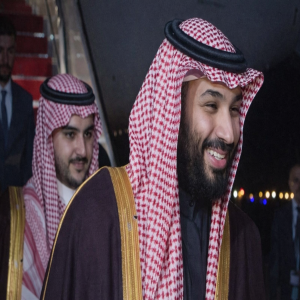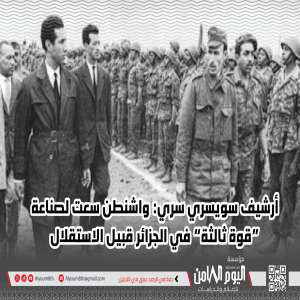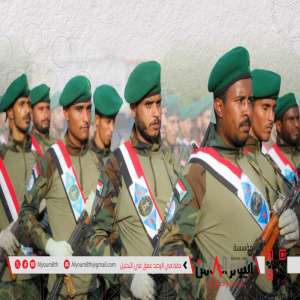A Kuwaiti newspaper reveals the secrets of the meetings of the Iranian National Security Counci
Saudi Arabia and the Kuwaiti gas dispute with Iran… IRGC Green Light for Direct Clash
Kuwait and Saudi Arabia consider the Durra gas field their own, but Iran claims part of it. The case shows that differences remain between Riyadh and Tehran after the resumption of diplomatic relations.
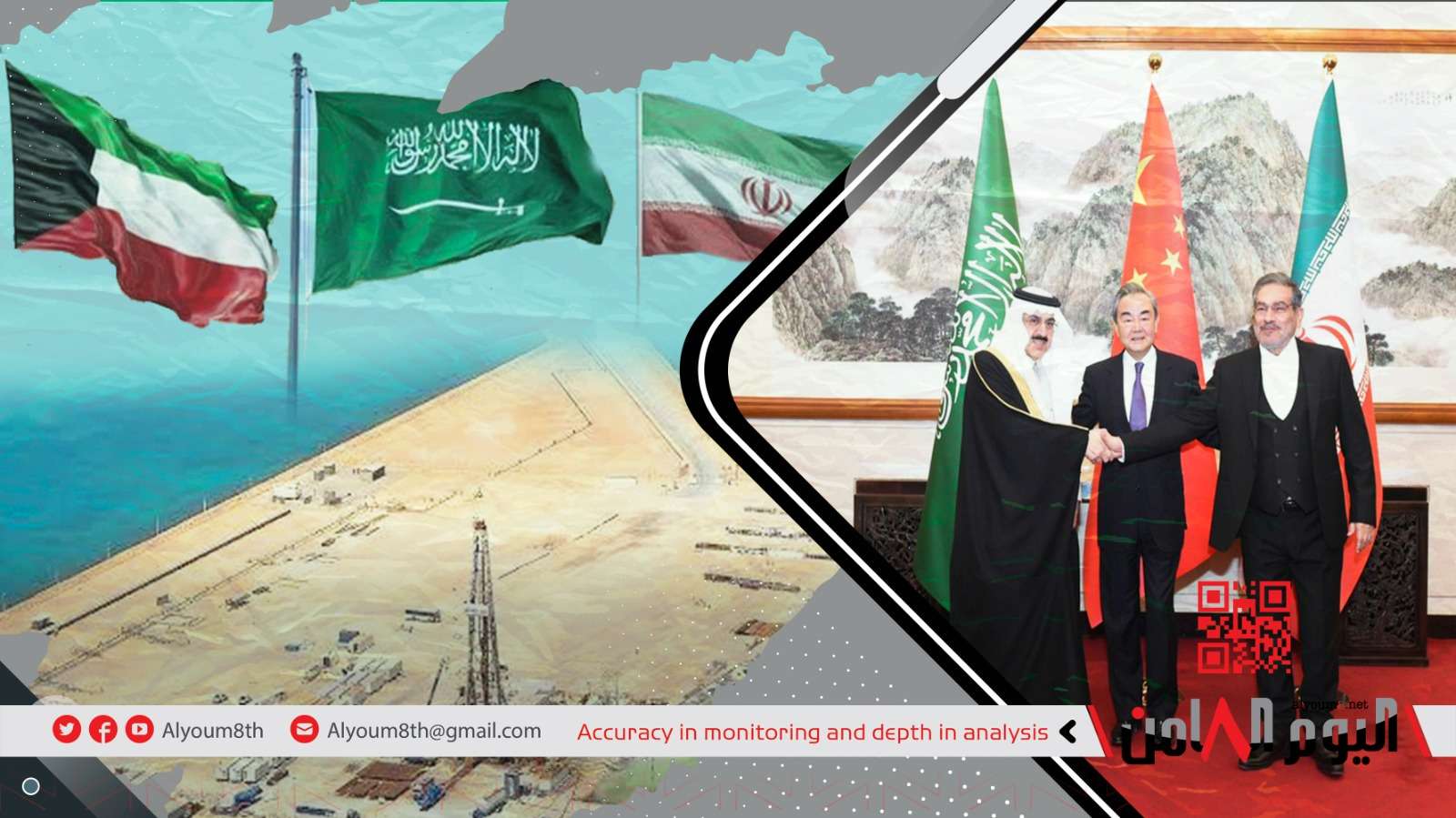
Dispute over Durra field could torpedo China-sponsored Iran-Saudi deal in March – Archive
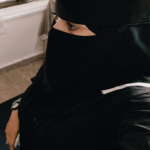
A Kuwaiti newspaper revealed part of the secrets of the meetings of Iran's Supreme National Security Council in the presence of President Ebrahim Raisi, while an American newspaper said that the Iranian-Saudi dispute still exists despite the resumption of diplomatic relations between the two countries after a years-long estrangement.
The Kuwaiti newspaper Al-Jarida quoted an informed source in the Supreme National Security Council of Iran, confirmed that the Council discussed, during its meeting last Wednesday evening, the issue of the Durra field, which is located in Kuwaiti territorial waters within the submerged divided area, between Kuwait and Saudi Arabia, Northwest of the Gulf. In an escalatory move, it reflects Iran's insistence on building facilities in the field it calls «Arash», The source reported that during the meeting, it was decided to instruct the IRGC to form special forces to protect the facilities that the Iranian Oil Ministry wants to build in the field. In addition, the Supreme National Security Council, whose sessions are chaired by Iranian President Ebrahim Raisi, decided, Give the green light to these forces to clash directly with any units that approach the area that Iran considers to be within its territorial borders without any prior warning; In order to convey a clear and firm message that Tehran will not be complacent in this regard, the source said. However, the source added that there was full consensus, during the Council meeting, that the renewed dispute over the Durra field must be resolved diplomatically by returning to negotiations with Kuwait. But there was a determination to reject any negotiations on the demarcation of the maritime border as long as there was no recognition by Kuwait of any right of Iran in this field.He explained that the meeting also rejected any tripartite negotiations between Iran, Saudi Arabia and Kuwait on the demarcation, on the grounds that the file of demarcation of the maritime border between Tehran and Riyadh has been completed and folded.
In a report by the American newspaper Al-Monitor, translated by Al-Youm Al-Thamen,the dispute over the Durra gas field in the Gulf is affecting improved relations between Saudi Arabia and Iran, it also complicates gas development plans for both countries as well as Kuwait.
Al-Durra – known as Arash in Iran – is located in the northwestern part of the Gulf off the coast of Kuwait. Saudi Arabia and Kuwait consider the field to be in their neutral zone, but Iran claims the northern part of the field. The conflict dates back to the sixties of the twentieth century and delayed the development of the field.
The issue has escalated recently. Saudi Arabia and Kuwait signed an agreement last year to develop Durra recently. In response, Iran called the deal "illegal." In late June, the National Iranian Oil Company said it was preparing to start drilling at Durra.
On Monday, Kuwait said it "rejects" the plans. On Tuesday, Saudi Arabia reiterated its rights on the ground alongside Kuwait and called on Iran to negotiate, according to state media. The dispute over the successor to an agreement between Saudi Arabia and Iran to resume diplomatic relations in March comes in a deal brokered by China. The two rivals cut ties in 2016.
Christian Coates Ulrichsen, a fellow at Rice University's Baker Institute, said the dispute was a "test" for improving Saudi-Iranian relations.
Ulrichsen told Al-Monitor, "Specific flashpoints like these could always have put to the test recent moves to reconcile and restore diplomatic relations.""How this is resolved will be an early indication of the depth and strength of the rapprochement between Iran and its Gulf neighbors," he said.
Saudi Arabia and Iran have made progress toward improving bilateral relations. Iran reopened its embassy in Riyadh last month.
In May, Saudi Arabia agreed to restore ties with Syria — Iran's main ally in the region.
The kingdom has also held talks with Iran-backed Houthi rebels in Yemen this year, though the war is far from officially over.
The Durra case shows that there are still important issues between Iran and Saudi Arabia, according to Ulrichsen.
"The disagreement is a reminder that specific points of disagreement remain living issues," he said. "It remains to be seen how and to what degree the fact that there are direct relations now between Tehran and Riyadh will lead to tangible progress in these individual cases, which have challenged the solution in the past."
Christine Smith Diwan, a senior resident fellow at the Arab Gulf States Institute in Washington, said the Dora dispute could enable the Gulf to show how a shift in regional relations can be beneficial.
Diwan told Al-Monitor, "Although it is difficult, it may be an opportunity to show how improved communications between Gulf neighbors can lead to mutual benefits."
Although natural gas is known for its oil, it is also important for the three countries. Both Saudi Arabia and Iran have large reserves of natural gas. Saudi Aramco announced a major gas discovery last November, and the kingdom is seeking to develop the industry.
The Islamic Republic is struggling to tap its gas reserves. Iranian homes experienced heat disturbances last winter,this forced the authorities to apologize, Al-Monitor's correspondent in Tehran reported in January.
Kuwait, on the other hand, has relatively fewer reserves of natural gas and relies on imports. In 2021, Kuwait opened its first permanent LNG import facility. The move was part of an attempt to rely less on crude oil, Bloomberg reported at the time.
"Officials in Saudi Arabia and Kuwait are seeking to develop gas reserves to relieve pressure on oil for power generation while Iran has to catch up in developing and monetizing its huge gas reservoirs as a result of years of sanctions and isolation," Ulrichsen said.
Bloomberg reported in 2021 that gas demand is set to rise in Kuwait. Diwan said gas production is particularly important for Kuwait because of this reality.
"Production is the most important for Kuwait due to its urgent domestic gas needs," she said.
Most of the gas in the Durra field will be used domestically in the three countries, and therefore will have a "minimal" impact on global gas markets, Diwan said.

